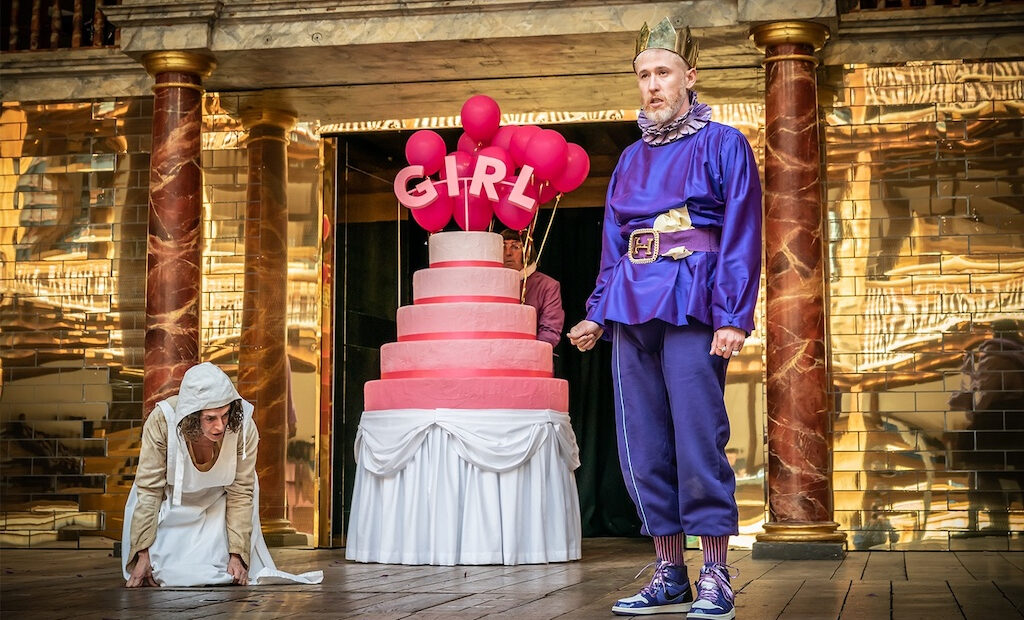Henry VIII at Shakespeare’s Globe

Shakespeare’s history play Henry VIII, co-written with John Fletcher, is centred around the power dynamics between the men of the court and the men of the church who surrounded the infamous sovereign. To make a feminist manifesto out of this plot is the bold challenge that the Globe’s resident writer Hannah Khalil and director Amy Hodge have taken on. Khalil searched through the Bard’s entire body of work to select snippets that she cut and pasted into the narrative of Henry VIII to add a female perspective.
In its zeal to celebrate female characters, the play follows the unnecessary route of ridiculing the men involved, starting with the king himself (played by Adam Gillen), who is shown to be a brat and is often depicted in most ungainly scenarios, such as delivering a speech as he sits on the toilet. Hodge’s Henry VIII has no aplomb, and there is not the slightest hint of a regal quality to his demeanour. Queen Katherine (Bea Segura) is portrayed as outspoken and unafraid, but like the king, there is nothing in her manner to suggest her royal upbringing. In this modernised retelling, vulgarity and raucousness abound.
Although the choice to lighten up such a densely packed political play is understandable, at times the production trivialises the content to the point that it borders on slapstick material. Details such as announcing the sex of the royal baby with pink and blue balloons in the style of a gender-reveal party, or brandishing a giant inflatable phallus with the characters dancing around it and simulating sexual acts, or having the narrators sit on blow-up plastic chairs covered in bird droppings – all seem like desperate attempts to provide comic relief in a play that was not intended to be humorous. When the dramatic moments unfold, it’s difficult to sympathise as they are so closely woven in with scenes of silliness.
While it’s true that exploring the female perspective in the story of Henry VIII can present exciting and intriguing possibilities, making a patchwork of Shakespeare’s plays to achieve this makes for an awkward outcome, as there’s often dissonance between the various mixed passages and songs. It would have perhaps been more effective to write an original women-centred story based on these same events and name it after one of the female figures involved, or simply make the most of Shakespeare’s and Fletcher’s play, and honour their intent by highlighting the toxic dynamics that the playwrights wanted to address.
Mersa Auda
Photo: Marc Brenner
Henry VIII is at Shakespeare’s Globe from 19th May until 21st October 2022. For further information or to book visit the theatre’s website here.

























Facebook
Twitter
Instagram
YouTube
RSS